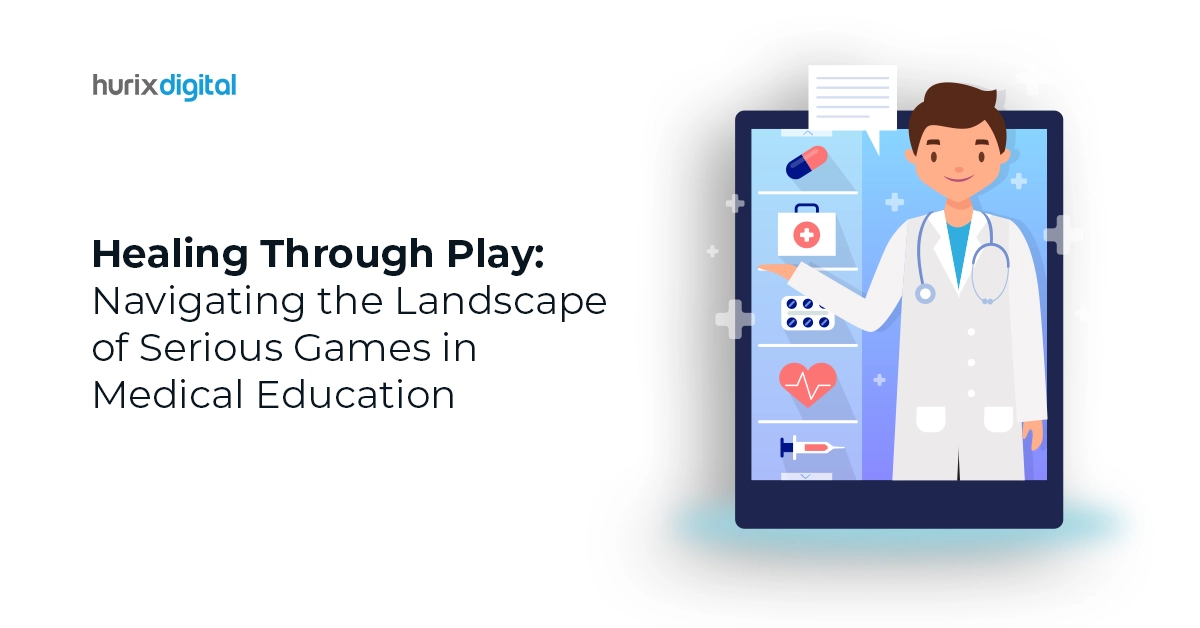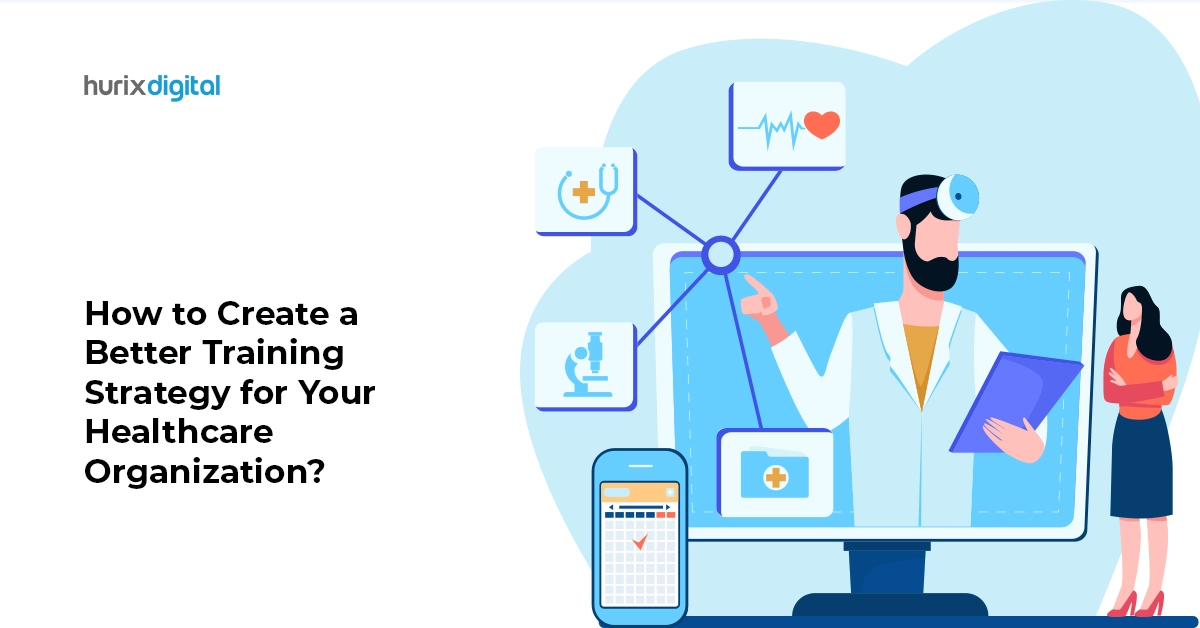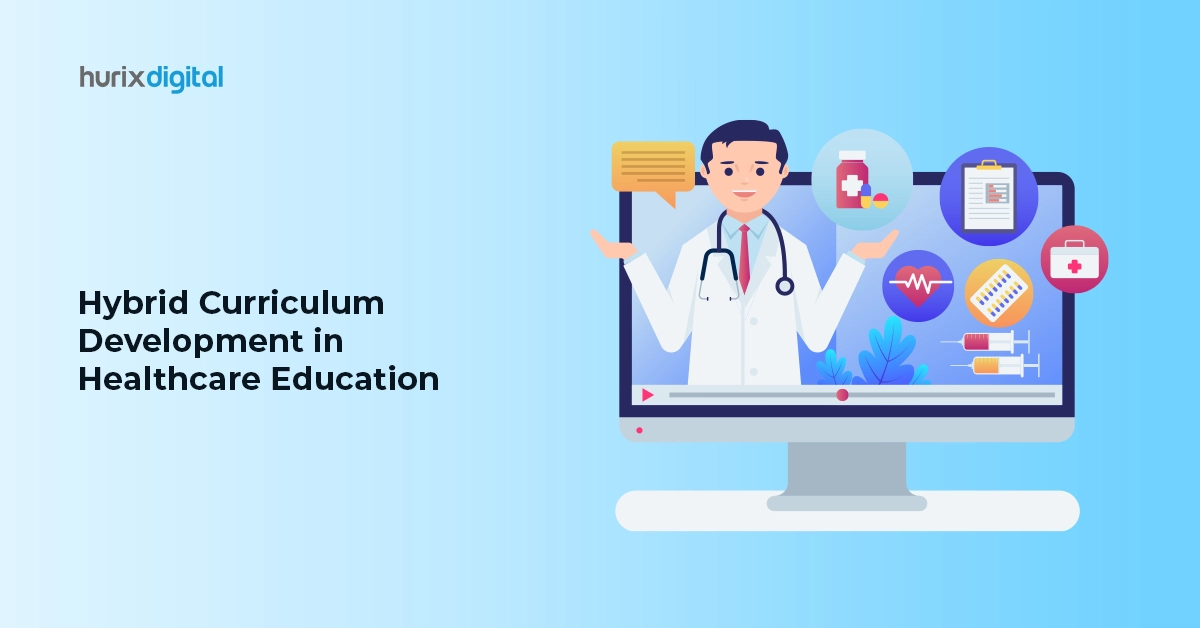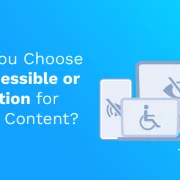
Designing Effective Application Training Programs for Healthcare Professionals
Summary
Learn how to design application training programs tailored for healthcare professionals, emphasizing the need for accuracy, compliance, and practical skills development.
In the fast-paced world of healthcare, staying updated with the latest technologies and applications is crucial. This is where Application Training comes into play, ensuring that healthcare professionals are equipped with the necessary skills and knowledge to navigate and utilize specialized software and tools. This blog will delve into the Importance of Application Training in Healthcare, why Application Training is vital for Workforce Learning, and the essential considerations in designing effective Application Training programs for healthcare professionals.
Table of Contents:
- What is Application Training?
- Why is Application Training so important for Workforce Learning in Healthcare?
- Designing Effective Application Training Programs for Healthcare Professionals
- Train Healthcare: Tailoring Programs to Industry Needs
- Training for Healthcare Professionals: A Multifaceted Approach
- Application for Training: Blending Theory with Practice
- Training for Healthcare: Flexibility and Accessibility
- Application Training: Ongoing Evaluation and Feedback
- Employee Training Plan: Holistic Development
- Medical Assistant Training: A Case Study
- Train Healthcare: Fostering a Culture of Excellence
- Conclusion
What is Application Training?
Application Training is a specialized form of education aimed at equipping healthcare professionals with the skills and knowledge required to use software applications relevant to their field effectively. These applications could range from Electronic Health Records (EHR) systems, telemedicine platforms, and medical imaging software to various other tools designed to streamline patient care and administrative processes. It involves hands-on training, simulations, and real-world scenarios to ensure that professionals are adept at utilizing these applications in their day-to-day tasks.
Also Read: 5 Ways to Deliver Application Training and Improve Employee Efficiency
Why is Application Training so important for Workforce Learning in Healthcare?
The Importance of Training in Healthcare cannot be overstated. With the ever-evolving technological landscape, healthcare professionals must adapt to new tools and systems to deliver the best possible care. Application Training plays a pivotal role in achieving this. Here’s why:
1. Enhanced Patient Care:
Efficient use of specialized applications can significantly improve patient care. For instance, a well-trained medical assistant proficient in Electronic Health Record (EHR) systems can quickly access patient records, track medical histories, and provide timely and accurate information to the healthcare team.
2. Increased Productivity:
A well-executed Employee Training Plan focused on application usage leads to increased productivity. When healthcare professionals are adept at using software, they can perform tasks more efficiently, thereby saving time and resources.
3. Error Reduction:
Mistakes in healthcare can have serious consequences. Application Training helps minimize errors that can occur due to unfamiliarity or misuse of critical software. For instance, a radiologist proficient in advanced medical imaging software is less likely to misinterpret results.
4. Compliance and Security:
In the realm of healthcare, data privacy and compliance with regulations are paramount. Application Training ensures that professionals are well-versed in the best practices for handling sensitive patient information within the bounds of legal and ethical frameworks.
Designing Effective Application Training Programs for Healthcare Professionals
In the rapidly evolving landscape of healthcare, staying abreast of the latest technologies and best practices is paramount. This underscores the importance of training in healthcare. A well-structured application training program not only equips healthcare professionals with the necessary skills but also fosters a culture of continuous learning and improvement.
When it comes to Training for Healthcare Professionals, especially in the context of specialized applications, careful planning and execution are key. Here are some vital considerations:
Train Healthcare: Tailoring Programs to Industry Needs
The first step in designing an effective training program is understanding the specific needs and challenges faced by healthcare professionals. Whether it’s adapting to new technologies, mastering updated protocols, or enhancing patient communication, a customized training program ensures that skills are relevant and directly applicable.
Training for Healthcare Professionals: A Multifaceted Approach
A one-size-fits-all approach seldom works in the healthcare sector. Different professionals have distinct roles and responsibilities, each requiring a tailored training regimen. For instance, a medical assistant training program would differ significantly from that of a radiologist or a nurse. Specialized training modules should address the unique demands of each role.
Application for Training: Blending Theory with Practice
An effective training program doesn’t just disseminate theoretical knowledge; it emphasizes practical application. Simulations, case studies, and hands-on experiences should be integral components of any healthcare training program. This ensures that professionals not only understand concepts but also know how to apply them in real-world scenarios.
Training for Healthcare: Flexibility and Accessibility
The demands of healthcare professionals are dynamic and demanding. Designing a training program that offers flexibility in terms of scheduling and accessibility is crucial. Leveraging technology, such as e-learning platforms or mobile applications, allows professionals to engage with the training material at their own pace and convenience.
Application Training: Ongoing Evaluation and Feedback
A successful application training program is not a one-time event but an ongoing process. Regular evaluation of the program’s effectiveness is imperative. This can be done through assessments, surveys, and feedback sessions with participants. Analyzing the results allows for adjustments and improvements to be made, ensuring that the training remains relevant and impactful.
Employee Training Plan: Holistic Development
Beyond technical skills, healthcare professionals must also be equipped with soft skills like communication, empathy, and teamwork. An employee training plan should encompass these aspects, recognizing that a holistic approach to development leads to more well-rounded and effective professionals.
Medical Assistant Training: A Case Study
Consider the example of medical assistant training. This role necessitates a unique blend of administrative skills, clinical knowledge, and patient interaction. A tailored program would encompass areas like medical terminology, electronic health records management, and patient education techniques. Practical exercises in a simulated clinical setting would further reinforce these skills.
Train Healthcare: Fostering a Culture of Excellence
Ultimately, a well-designed training program is not just about individual development but about creating a culture of excellence within the healthcare organization. When professionals are empowered with the right knowledge and skills, they are more confident, competent, and committed to providing the highest quality of care.
Use case:
One notable example of effective Application Training is the implementation of Medical Assistant Training programs. These programs often include modules that use Electronic Health Records (EHR) systems, medical billing software, and appointment scheduling applications. Through hands-on training and practical exercises, medical assistants become proficient in efficiently managing patient information and administrative tasks.
By conducting thorough needs assessments, providing hands-on practice, and offering ongoing support, organizations can empower their staff to leverage technology for enhanced patient outcomes. With well-designed application training programs, healthcare professionals can confidently navigate and utilize applications to deliver the highest standard of care.
Also Read: Top 5 Must-Have Features for Effective Healthcare Training
Conclusion
In the ever-evolving healthcare landscape, the Importance of Training in Healthcare, especially in the form of Application Training, cannot be overstated. It empowers healthcare professionals to deliver superior patient care, enhance productivity, and ensure compliance with regulatory standards. When designing these programs, it’s imperative to customize the content, provide hands-on experience, emphasize continuous learning, seek feedback, and implement assessment mechanisms.
By tailoring programs to industry needs, emphasizing practical application, and fostering a culture of excellence, healthcare organizations can ensure that their professionals are equipped to deliver the highest standard of care.
For comprehensive and tailored solutions in healthcare training, consider partnering with Hurix Digital, a leading provider of innovative learning solutions. Email us at marketing@hurix.com to tap into our expertise in creating engaging and effective application training programs that make a significant difference in the proficiency of healthcare professionals in using critical applications.
In the rapidly advancing world of healthcare, staying updated is not just an option; it’s a necessity. By investing in robust Application Training, healthcare organizations can ensure that their workforce remains at the forefront of delivering quality care. Train healthcare, empower professionals, and elevate patient outcomes.

Performance, Results, Growth, and Life-Long Learning define my professional life. I am passionate about making workplace learning planful, purposeful, and impactful. I take pride in partnering with clients and bringing them the best in learning design and creating solutions that address business challenges.







